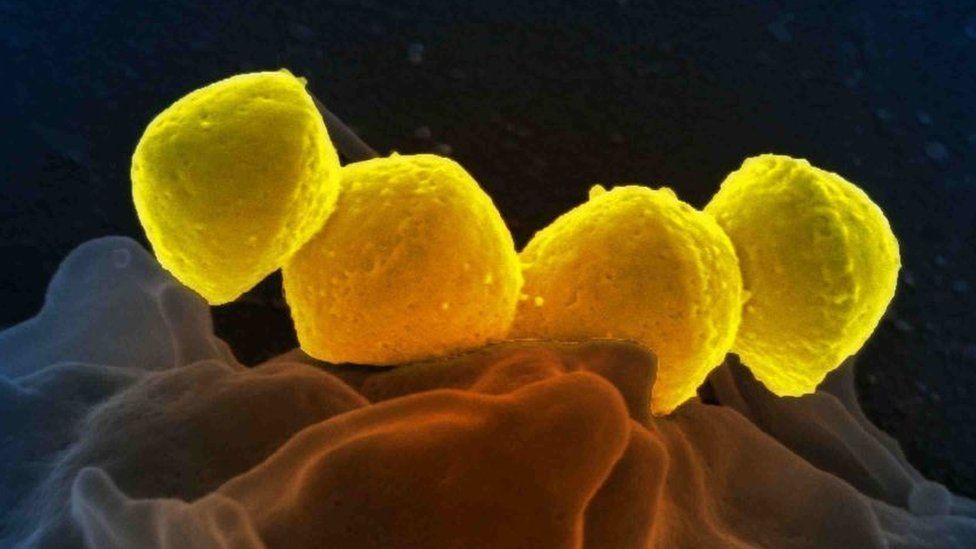Strep A: At least 30 children have died in UK since mid-September
- Published

At least 30 children have died in the UK from invasive strep A since 19 September, new figures reveal.
In total, 122 people have died in England from the invasive form of the bacterial infection, UK Health Security Agency (UKHSA) data shows.
Of these, 25 of the deaths were under-18s. There have been a further three deaths of children in Northern Ireland and Wales combined.
On Wednesday, Public Health Scotland confirmed the deaths of two children.
Group A strep bacteria can cause a range of illnesses, including scarlet fever and strep throat.
The UKHSA says it is seeing an out of season increase in scarlet fever and group A streptococcus infections and a higher number of cases than seen in a typical year.
Since Covid restrictions eased and people are mixing more, there are more opportunities for infections like this to spread.
While the majority of cases are relatively mild, sometimes strep can cause a life-threatening invasive Group A Streptococcal infection (iGAS), when it gets through the body's defences and passes into areas it is not normally found, such as in the blood, lungs or muscles.
The UKHSA recorded 151 iGAS cases in children aged one to four between 19 September and 25 December, compared to 194 cases in the same age group across the whole season of 2017 to 2018 - the last period with similarly high infection rates.
The health agency said iGAS infections remain rare and most cases continue to be in the over-45s.
There have been 33,836 notifications of scarlet fever this season, compared to 4,672 at the same point in 2017 to 2018.
Dr Obaghe Edeghere from the UKHSA said the ongoing rise in cases scarlet fever and strep throat (a sore throat caused by the strep A illness) is "understandably concerning for parents".
But he stressed the condition "can be easily treated with antibiotics and it is very rare that a child will go on to become more seriously ill".
"Over the winter, there are lots of illnesses circulating that can make children unwell and so it is important to avoid contact with other people if you are feeling unwell, wash your hands regularly and thoroughly and catch coughs and sneezes in a tissue", Dr Edeghere added.
He also emphasised parents must make sure they speak to a healthcare professional if they believe their child is becoming more ill, for example if they are:
- feeding or eating less than normal
- have a high temperature that won't go down
- are very hot and sweaty
- seem more tired or irritable than normal.
Other key comparisons from the UKHSA data show that there have been 102 iGAS cases in children aged five to nine, compared to 117 across the 2017 to 2018 season.
Of 122 deaths across all age groups in England this season, 49 were in the over-75s and 20 were children younger than 10. In 2017 to 2018 there were 355 deaths in total - including 27 children.
On Wednesday, Scotland's national clinical director Professor Jason Leitch said the country was experiencing the highest number of Strep A infections since 2017 - but added the deaths of two children there this year so far was "not unusual".